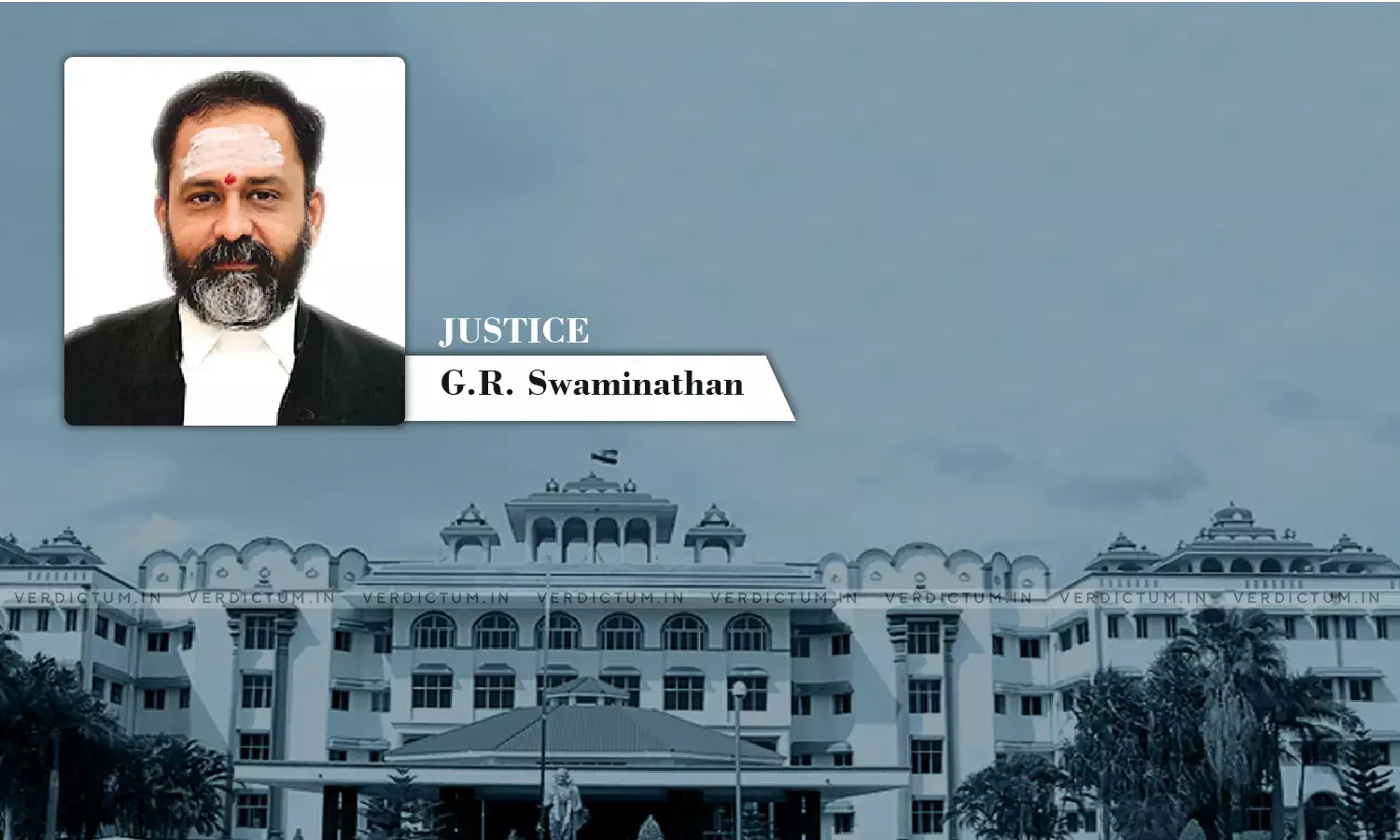Closing Temple Without Customary Rituals Amounts To Imprisoning Deity: Madras HC Orders Immediate Reopening
The Madras High Court ruled that closing a temple without permitting customary rituals amounts to imprisoning the deity.
The case originated from a petition requesting that authorities be prevented from stopping the Pillaimar Community from reopening and performing customary pujas at the Sri Muthalamman and Sri Mariyamman Temple in Uthapuram Village, Peraiyur Taluk, Madurai District. Disputes had arisen between the Pillaimar and Pallar communities over an untouchability wall in 2010, which led to the closure of the temple. Further disputes arose in 2014 involving changes to worship practices, which resulted in the temple being closed for ten years.
A Bench of Justice GR Swaminathan emphasized that temples cannot be sealed on grounds of law and order. The Court said, “Once it is understood that the idol housed in a temple is to be treated as a living person, closure of the temple without the customary poojas would amount to its imprisonment. Even prison inmates are fed properly and their basic necessities are met. In the case on hand, the deity has been totally deprived. An idol is considered as a juristic personality in law. This is understood as enabling the idol to hold property and to sue and be sued in its name. Time has come to expand the scope of this concept.”
The Court noted that just as devotees have the right to worship, deities have a right to their customary rituals. The Court added, “So long as there is no practice of untouchability or offending the rights of others, a temple cannot be closed or shut down indefinitely. This is as much the right of a devotee to offer worship as well as the right of the deity to observance of the customary rituals. Court has to exercise parens patriae jurisdiction when the interest of minor, the mentally ill and idols are at stake. It is the duty of the Court to uphold the right of the parties to perform the daily dharmic rituals.”
The authorities informed the court that the temple closure was voluntary by the Pillaimar community, not ordered by them. However, the Court found this submission unconvincing. The Court said, “I do not buy this theory. It is the Pillaimar Community that is before me. Their prayer is that they should not be prevented from opening the temple. If they have on their own volition locked the temple, why would they seek this prayer? They can simply open the temple. It is because of their apprehension that the respondents may adversely react, the present writ petition has been filed.”
Characterizing the temple's condition as “truly pathetic,” the Court ordered that the temple be reopened immediately and remain open during regular worship hours. The Court directed, “The fundamental right of the petitioner and the other villagers guaranteed under Article 25 of the Constitution to visit the temple and take part in the worship of the deity shall not be taken away for any reason. If law and order arises, the jurisdictional Police will register an FIR and prosecute the offenders. No temple can be locked and sealed on the ground of law and order.”
Cause Title: G. Pandi v. The District Collector & Ors.
Appearance:
Petitioners: Advocates G. Prabhu Rajadurai for S. Senthur Pandian
Respondents: Advocates G. V. Vairam Santhosh, A. Albert James
Click here to read/download Order




